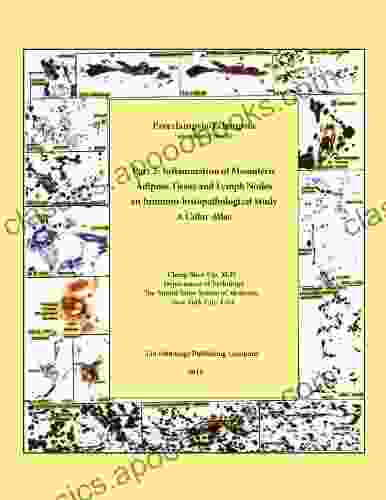Contemporary Central and Eastern Europe and the Rise of Illiberalism

4.5 out of 5
| Language | : | English |
| File size | : | 1757 KB |
| Text-to-Speech | : | Enabled |
| Screen Reader | : | Supported |
| Enhanced typesetting | : | Enabled |
| Word Wise | : | Enabled |
| Print length | : | 208 pages |
| Lending | : | Enabled |
| Paperback | : | 136 pages |
| Item Weight | : | 5 ounces |
| Dimensions | : | 5 x 0.29 x 8 inches |
In recent years, the rise of illiberalism has been a concerning trend in many parts of the world, and Central and Eastern Europe has been no exception. In countries such as Hungary and Poland, democratic institutions have been weakened, and the rule of law has been eroded. This has raised concerns about the future of democracy in the region.
This article will explore the factors that have contributed to the rise of illiberalism in Central and Eastern Europe, with a focus on Hungary and Poland. We will examine the role of historical factors, economic conditions, and political opportunism in the rise of illiberal regimes in these countries.
Historical Factors
The historical experiences of Central and Eastern Europe have played a significant role in shaping the region's political landscape. The legacy of communism and the transition to democracy have both left their mark on the political culture of the region.
In many Central and Eastern European countries, the communist era was characterized by a lack of democracy, limited individual freedoms, and a heavy-handed state. This experience has left a lasting distrust of government and democratic institutions in some parts of the region.
The transition to democracy in the 1990s was a difficult and uneven process. In some countries, democratic institutions were quickly established and consolidated. In others, however, the transition was more chaotic and led to political instability.
The legacy of communism and the challenges of the transition to democracy have created fertile ground for the rise of illiberalism in Central and Eastern Europe. Illiberal leaders have been able to exploit these historical experiences to gain support for their anti-democratic agendas.
Economic Conditions
Economic conditions have also played a role in the rise of illiberalism in Central and Eastern Europe. The global financial crisis of 2008 had a devastating impact on the economies of many countries in the region.
The economic crisis led to high unemployment, poverty, and social unrest. This created a sense of insecurity and a loss of faith in the existing political Free Download. Illiberal leaders have been able to tap into this discontent to gain support for their promises of stability and a return to traditional values.
Political Opportunism
In addition to historical factors and economic conditions, political opportunism has also contributed to the rise of illiberalism in Central and Eastern Europe. Illiberal leaders have been able to exploit the weaknesses of democratic institutions and the public's dissatisfaction with the status quo to gain power.
In some cases, illiberal leaders have used populist rhetoric to appeal to voters' fears and prejudices. They have promised to restore national pride, protect traditional values, and crack down on immigration. This message has resonated with many voters who feel that they have been left behind by the forces of globalization.
In other cases, illiberal leaders have used more subtle tactics to consolidate their power. They have gradually eroded democratic institutions, weakened the rule of law, and marginalized their political opponents.
The Case of Hungary
Hungary is a prime example of the rise of illiberalism in Central and Eastern Europe. Under the leadership of Prime Minister Viktor Orbán, Hungary has undergone a significant democratic backsliding in recent years.
Orbán has weakened the independence of the judiciary, curtailed press freedom, and cracked down on civil society organizations. He has also used anti-immigrant and anti-EU rhetoric to consolidate his power.
Orbán's illiberal regime has been a cause for concern for the European Union and other international organizations. The EU has launched infringement procedures against Hungary for violating the rule of law. However, Orbán has thus far been able to withstand international pressure.
The Case of Poland
Poland is another country in Central and Eastern Europe that has experienced a rise of illiberalism in recent years. Under the leadership of the Law and Justice party, Poland has taken steps to weaken the independence of the judiciary, limit press freedom, and restrict the rights of women and LGBT people.
The Law and Justice party has also used anti-immigrant and anti-EU rhetoric to consolidate its power. It has promised to defend Poland from the threat of Islam and to resist the imposition of EU values.
The rise of illiberalism in Poland has also been a cause for concern for the European Union. The EU has launched infringement procedures against Poland for violating the rule of law. However, the Law and Justice party has thus far been able to withstand international pressure.
The rise of illiberalism in Central and Eastern Europe is a serious threat to democracy in the region. Illiberal leaders have been able to exploit historical factors, economic conditions, and political opportunism to gain power and consolidate their rule.
The international community must continue to pressure illiberal regimes in Central and Eastern Europe to uphold the rule of law and protect democratic institutions. The future of democracy in the region depends on it.
4.5 out of 5
| Language | : | English |
| File size | : | 1757 KB |
| Text-to-Speech | : | Enabled |
| Screen Reader | : | Supported |
| Enhanced typesetting | : | Enabled |
| Word Wise | : | Enabled |
| Print length | : | 208 pages |
| Lending | : | Enabled |
| Paperback | : | 136 pages |
| Item Weight | : | 5 ounces |
| Dimensions | : | 5 x 0.29 x 8 inches |
Do you want to contribute by writing guest posts on this blog?
Please contact us and send us a resume of previous articles that you have written.
 Book
Book Novel
Novel Page
Page Chapter
Chapter Text
Text Story
Story Genre
Genre Reader
Reader Library
Library Paperback
Paperback E-book
E-book Magazine
Magazine Newspaper
Newspaper Paragraph
Paragraph Sentence
Sentence Bookmark
Bookmark Shelf
Shelf Glossary
Glossary Bibliography
Bibliography Foreword
Foreword Preface
Preface Synopsis
Synopsis Annotation
Annotation Footnote
Footnote Manuscript
Manuscript Scroll
Scroll Codex
Codex Tome
Tome Bestseller
Bestseller Classics
Classics Library card
Library card Narrative
Narrative Biography
Biography Autobiography
Autobiography Memoir
Memoir Reference
Reference Encyclopedia
Encyclopedia Philip Pullman
Philip Pullman Shion Miura
Shion Miura Ruskin Bond
Ruskin Bond Charles Levenback
Charles Levenback Jim Knight
Jim Knight Ben Carson
Ben Carson Mariah Wolfe
Mariah Wolfe Andy Aledort
Andy Aledort Peter Temin
Peter Temin Andrew Johnson
Andrew Johnson Jay Irwin
Jay Irwin Kristen Delay
Kristen Delay Steve Lindahl
Steve Lindahl Ann Lee
Ann Lee John Campbell
John Campbell Zack Neher
Zack Neher George Francis Dow
George Francis Dow Scottie Nell Hughes
Scottie Nell Hughes Kathryn Edin
Kathryn Edin N D Wilson
N D Wilson
Light bulbAdvertise smarter! Our strategic ad space ensures maximum exposure. Reserve your spot today!
 Henry HayesFollow ·11.1k
Henry HayesFollow ·11.1k Tennessee WilliamsFollow ·4.4k
Tennessee WilliamsFollow ·4.4k Garrett BellFollow ·6.7k
Garrett BellFollow ·6.7k Allan JamesFollow ·11.9k
Allan JamesFollow ·11.9k Felipe BlairFollow ·3.2k
Felipe BlairFollow ·3.2k Enrique BlairFollow ·15.9k
Enrique BlairFollow ·15.9k Glen PowellFollow ·18.9k
Glen PowellFollow ·18.9k Derek CookFollow ·3k
Derek CookFollow ·3k

 Devin Ross
Devin RossUnlocking the Secrets of the Mind: Brain Mapping...
The human...

 Jacob Foster
Jacob FosterNovel of Misconception, Truth, and Love: A Journey of...
Unraveling the Lies We...

 Benji Powell
Benji PowellThe Only Technique You Will Ever Need: Unlocking the...
By [Author's...

 Pete Blair
Pete BlairUnveiling the Enchanting World of 'Magnolia House' by...
A Literary...
4.5 out of 5
| Language | : | English |
| File size | : | 1757 KB |
| Text-to-Speech | : | Enabled |
| Screen Reader | : | Supported |
| Enhanced typesetting | : | Enabled |
| Word Wise | : | Enabled |
| Print length | : | 208 pages |
| Lending | : | Enabled |
| Paperback | : | 136 pages |
| Item Weight | : | 5 ounces |
| Dimensions | : | 5 x 0.29 x 8 inches |
















